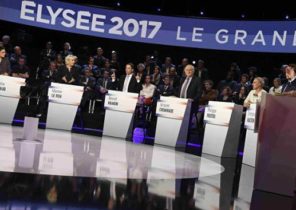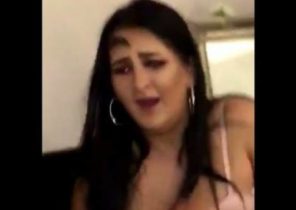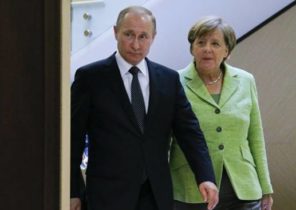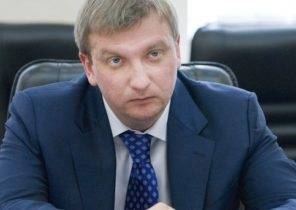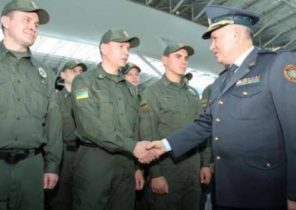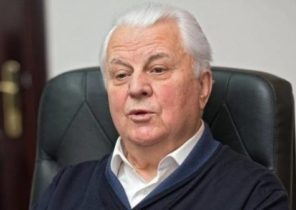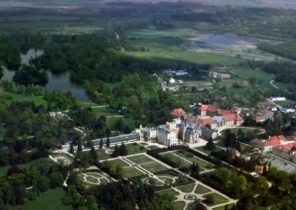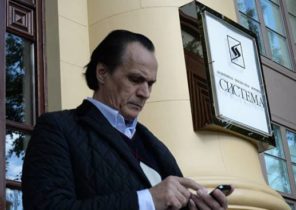In Russia, the pandemic has put in a quandary and the opposition and the authorities. The opposition used to compare the regime of President Vladimir Putin with more effective democracies and to give him a failing grade, forced to recognize the failures of Western countries such as the United States, which is now in first place in the world in number of diseases, deaths and, according to Putin, he is a failure. But Putin’s supporters can hardly claim that Russia became a model of the benefits of the authoritarian model in times of crisis. She briefly came in second place in the world for number of diseases (a few days ago, giving it to Brazil), and also showed a very curious absence of a strong and centralized leadership. According to official data, even Ukraine, which Russia has long been called a model of a corrupt and incompetent democracy, it is scaring those who are afraid of regime change, was able to better contain the spread of the pandemic.
Leading the fight against the pandemic, Putin did not bring their system fame, but not discredited it entirely. His supporters expected him to vividly show their leadership qualities, which did not happen. His detractors had expected lies and violence, which Putin was not allowed. Acting with restraint, Putin has lost some of its political advantage and even created a problem for the future. Russia failed to take advantage of the crisis situation in the world for its own geopolitical benefit, but within countries, the pandemic has weakened Putin’s vertical of power and intensified the conflict within the ruling elite.
Ambiguous responses
At the beginning of the pandemic, many Russians believed that Putin will be with a dashing slighting their own safety. Another popular television series was recently reminded fans about how in 1986 the Soviet state for political reasons urged their citizens to come on may demonstration and had not informed them of the danger, although it was only five days after the explosion in Chernobyl. About the same waited from Putin.
When the pandemic struck, it seemed, nothing will prevent to carry out two major activities. The first was held April 22. On this day Putin appointed the referendum on introducing amendments to the Constitution, the purpose of which is to extend his power. The second event is always held on may 9, when Russia celebrates Victory Day, a government holiday. Many Russians believed that Putin will not undo anything, acting to the detriment of the people. His Belarusian counterpart Alexander Lukashenko held a may 9 military parade and did not even bother to cancel matches of the national football League. But Putin surprised critics. He moved the referendum to abolish the celebration of Victory Day.
The number of cases covid-19 in Russia, the first was very small, which some critics began to speculate that Putin is hiding the facts in the example of the Soviet government during the Chernobyl accident. But these critics were in an awkward position when the government openly began to say that the number of infected is growing, not hiding the fact that by mid-may, the number of cases in a country of close to 300 000. Now the number of new cases stabilized at about 10 000 per day, of which 5 000 come to Moscow, which is the largest city in the country and have suffered the most. The number of new cases had started to decline slightly, and this suggests that the peak is passed, and the country entered a plateau.
Putin certainly saw opportunities for Russia in the beginning of the pandemic, when the number of cases in the country is not a concern, and life in Moscow seemed much more normal than in many Western cities. Being the leader of a country seeking to change the world order in their favor, Putin can show that he can cope with the crisis more successfully than its Western counterparts. In March, China and Russia hastily sent assistance abroad as its traditional allies and the Western democracies, including the United States. This assistance was not just solidarity, but also a tool of soft power and a demonstration of superiority. But after a few weeks, Russia has received ventilators from the United States, and the benefits Putin has evaporated.
Russia itself is partly to blame. Because the pandemic arrived there later than in other countries, Moscow could benefit from the experience of these countries and to prepare better. But it seems that she did not. Moreover, Russian leaders have often said that we should look to the East, and called for an Alliance with China. But when the pandemic struck, the government quickly and ruthlessly closed the border with China and with other Asian countries. Its Western border and Russia was closed much slower and it gives a true psychological and financial-orientation of the Russian elite. As a result, the virus came to the Russian far East from China, and from Europe.
The epidemic prompted the Putin regime to tough action, worthy of the best arguments in favor of authoritarian discipline. Russia imposed measures of isolation, restrictions and penalties, but were much less strictly and rigidly than China. Most effectively the state authorities acted in Moscow, where they controlled the movement of people and machines using QR codes and traffic surveillance cameras. But even there the streets were deserted mainly due to the fact that there was nowhere to go. Putin has forced employers to send their employees on paid leave, the shops and restaurants were closed, and people afraid of getting sick.
Putin could use this opportunity to demonstrate to the public his strong leadership qualities. But he acted belatedly and rather obscure. His first speech about the pandemic, he made only 25 of March, that is, three days after Moscow mayor Sergei Sobyanin has introduced restrictive measures to contain the spread of coronavirus. From this moment have the impression that information and even guide emanates from Moscow, not from Central government. Putin never declared a state of emergency and soon caught up with events, not anticipate them.
Most notably, Putin’s public reticence was reflected in his behavior behind the scenes. It would seem that such a leader in a crisis needs to concentrate power in their hands. However, he returned many of the powers of regional governors. This is very interesting because Putin almost 20 years persistently and consistently deprived local authorities hard rulers, appropriating it to their hands. Now, when all the news is grim, but the action is restrictive, Putin has decided: let the governors play bad guys and are responsible for the failures of health care and their restrictions. Himself as he took the role of a benefactor who distributes gifts in the form of working days and financial assistance.
But this trick didn’t work as planned. The level of support for Putin dropped to a historical low of 56%, while at its peak it accounted for 86%. Russian citizens are accustomed to news of strong macroeconomic indicators of surplus and substantial reserves, imagined that in the event of a disaster strong and generous Putin will take everything under control, overcome the crisis and help the people. Such views were far from reality. The President and the Central government in the middle of a crisis let go the reins instead of having to take everything under its tight control. Putin went into the shadows, allowing others to take responsibility for the fight against the epidemic, and provided much less financial assistance than expected people. Because of this, his supporters lost their presence of mind, and confused.
Strengthen the competition
Giving the fight against the pandemic at the mercy of local authorities, Putin has not only harmed his own reputation and prestige. He contributed to the internecine struggle for power between various factions of his regime. The pandemic has weakened the position of the newly appointed Prime Minister Mikhail mishustina, who at one time considered a potential successor to Putin. Now mishustina overshadowed other figures, and having caught the virus, it completely disappeared from the scene. In the center of a fierce factional battle was Moscow, with its huge budget and influence as the capital of the country. Many saw the crisis as a good opportunity to shift the ambitious Moscow mayor Sobyanin and capture this influential post. The main opponents of the mayor are the representatives of Russian intelligence services (the security forces) that commit a variety of maneuvers to capitalize on the pandemic and to seize more power.
Before the start of a pandemic, Putin made a bid for shameless authoritarianism. He timed his presidential terms, to be able to run again in 2024. But because two events — the transition to Putin’s blatant autocracy and pandemic coronavirus — was at the same time, they are now closely associated in politics. On the validity of Putin to be a lifelong leader of Russia will now be judged by how he will cope with the virus, and how it establish itself as a leader in this battle. Today it does not meet the expectations of the people. But a democracy is also not consistent.
The pandemic has shown how complicated our world. Lifestyle, leisure, recreation and everyday culture were more important than political systems in containing the coronavirus (or the inability to keep it). Democracy can be reconfigured, the change of power through elections. A modern Russia can not. By coincidence, Putin has put his political future dependent on unpredictable factors: the global pandemic and global economic recovery.
In March, Putin made his way to two more presidential terms. He seemed to believe that fortune will always smile to him, as it was from the beginning, when he took off fast and high, turning from a modest official in the Russian President. For some time he had reason to believe their luck. But that day, when the Russians had to come to the polls and vote for the extension of his reign, they were locked up in their homes and watched as Putin inconclusive struggles with an outbreak of the coronavirus in Russia, which in its magnitude was the second in the world. Now the Russian President is trying to get back to this more optimistic past and get people to vote for his plans at the end of June. But he does it from the standpoint that he relaxed.
